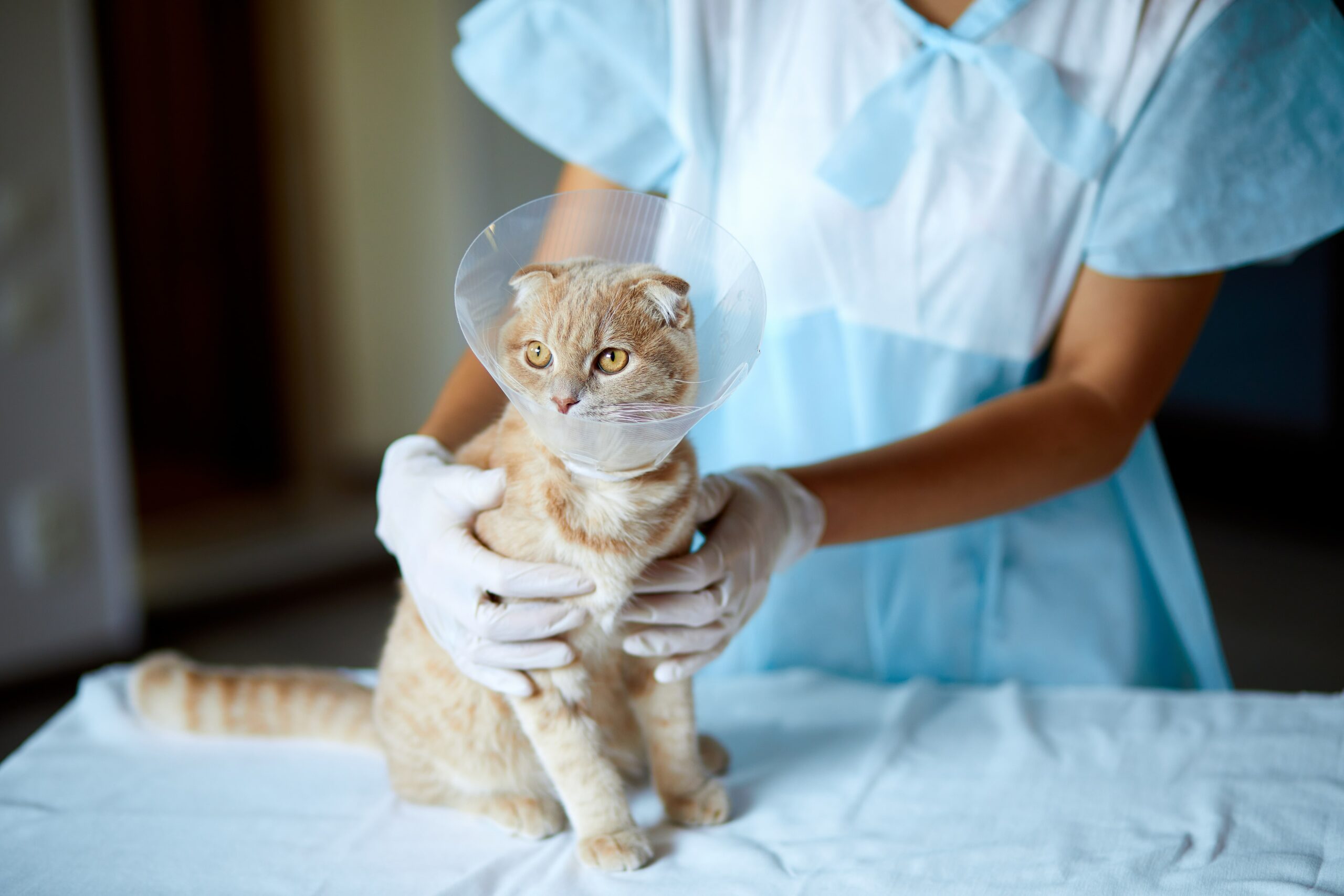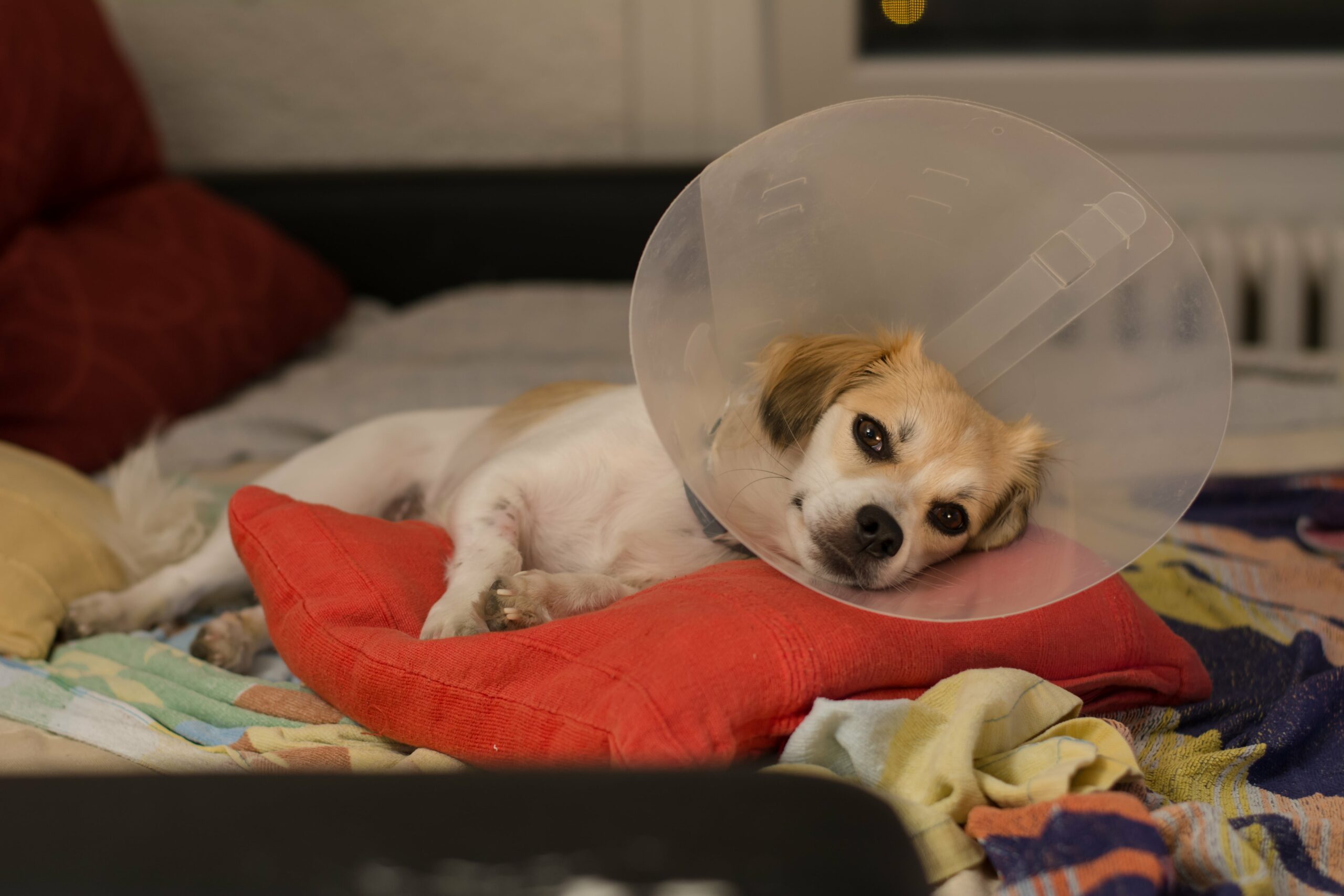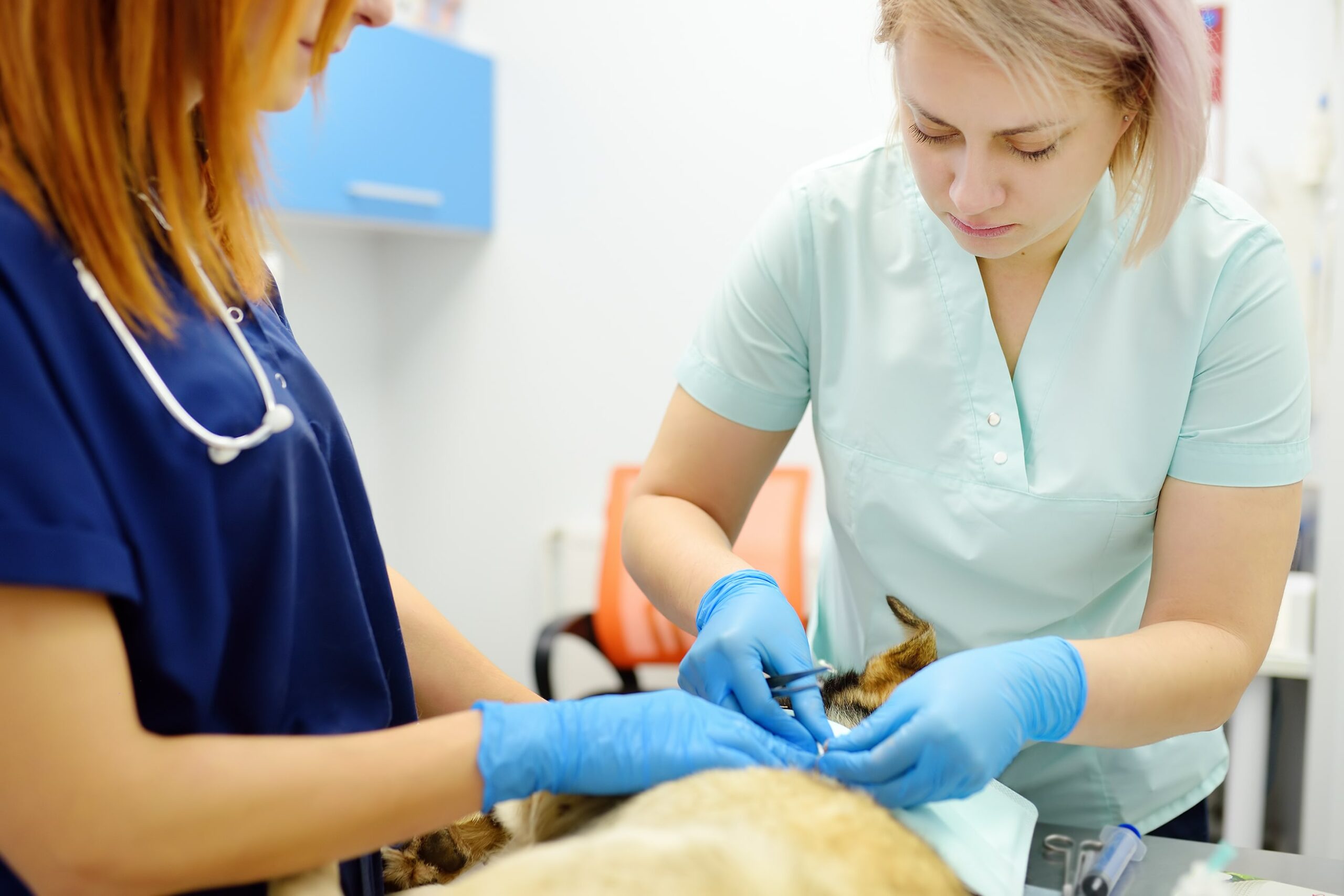Spay/Neuter Services at Broadmoor Animal Hospital in Shreveport, LA
At Broadmoor Animal Hospital in Shreveport, LA, we are dedicated to providing the best possible care for your pets. One of the most impactful ways to ensure your pet’s health and longevity is through spay and neuter services. Pet sterilization, including spaying for females and neutering for males, is not just a routine procedure—it’s a vital step in responsible pet ownership that contributes to your pet’s overall well-being.

Behavioral Benefits
Reduced Aggression
Neutering lowers hormone levels that contribute to aggression, leading to a calmer and more manageable pet, especially in multi-pet households or homes with children.
Post-operative care includes effective pain management and detailed aftercare instructions to support healing and prevent infection.
Less Marking and Spraying
Neutering reduces territorial behaviors like marking and spraying in male pets, creating a cleaner home environment and decreasing stress. Spaying in females also eliminates heat-related behaviors, making pets more content.
Fewer Roaming Tendencies
Neutering significantly decreases the urge to roam in search of a mate, reducing the risk of your pet getting lost, injured, or exposed to diseases. Spaying also curbs wandering behaviors in females, enhancing their safety and well-being.
Age Guidelines for Spaying and Neutering
Timing plays an important role in the effectiveness of spaying and neutering procedures. At Broadmoor Animal Hospital, we generally recommend that pets be spayed or neutered around six months of age. This timing allows pets to reach physical maturity while maximizing the health benefits, such as reducing the risk of certain cancers and preventing unwanted behaviors linked to sexual maturity. Spaying females before their first heat cycle further reduces the risk of breast, uterine, and ovarian cancers, while neutering males at this age helps prevent testicular cancer and prostate issues.

Comprehensive Care
Whether your pet needs a routine cleaning, a tooth extraction, or a dental implant, we offer comprehensive services under one roof. We take a holistic approach to dental care, considering how your beloved’s oral health impacts their overall well-being.
Gentle and Compassionate Care
We know that dental procedures can be intimidating for pets. Our team is dedicated to making the experience as stress-free as possible. We use gentle handling techniques and, when necessary, sedation to ensure your pet is comfortable throughout the procedure.
What to Expect: A Comprehensive Guide to the Spay/Neuter Process
Deciding to spay or neuter your pet is a key part of responsible ownership. At Broadmoor Animal Hospital, we aim to make the process smooth and stress-free. Here’s what to expect before, during, and after the procedure to help you feel confident and prepared.
Pre-Surgical Consultation and Preparation
Oral health impacts overall health significantly, with dental disease potentially leading to severe issues in other organs.
Preparation for Surgery
To prepare your pet for surgery, they must fast for 8-12 hours beforehand to reduce anesthesia risks. Follow specific instructions regarding any regular medications, and ensure your pet is calm and secure when arriving at the clinic.
On the day of surgery, your pet will be placed under general anesthesia. Our skilled veterinary team will perform the surgery with precision and care, utilizing advanced surgical techniques to minimize risks and promote a quick recovery.
Spaying Procedure (Females)
Spaying involves removing the ovaries and usually the uterus through a small abdominal incision, which is then closed with sutures or glue. This procedure is routine and safe when performed by experienced veterinarians.
Neutering Procedure (Males)
Neutering involves the removal of the testicles through a small incision in the scrotum. This less invasive surgery is typically straightforward, with the wound either sutured or left to heal naturally.
Monitoring During Surgery
Throughout the procedure, your pet’s vital signs are closely monitored by veterinary technicians to quickly address any potential complications, ensuring a safe surgery.
After the procedure, your pet will need a quiet, comfortable space to rest and recover.
Post-Operative Care Instructions
After surgery, your pet will be monitored as they wake from anesthesia. Once stable, you’ll receive detailed instructions on pain management, incision care, activity restriction, and preventing licking or chewing to ensure a smooth recovery.
Recovery Timeline and Care Tips
Most pets recover within 7-14 days. Initially, they may be drowsy, but their energy should return gradually. Activity should be restricted to allow the incision to heal properly, with close monitoring for any complications.
Follow-Up Care
A follow-up visit may be scheduled to check the incision and overall recovery. If all looks well, your pet can gradually resume normal activities.
Tips for a Smooth Recovery
Stick to your pet’s regular diet, provide a quiet resting space, and watch for any signs of complications like vomiting or changes in behavior, contacting us if needed.
Dental Health and Its Connection to Overall Health
Maintaining your pet’s dental health is not just about keeping their teeth clean; it’s about safeguarding their overall health. Dental disease is a common issue in pets, and its effects can be far-reaching. For example:

Role of Spaying/Neutering in Community Health
Spaying and neutering help prevent pet overpopulation, reduce the strain on shelters, and curb the spread of diseases like rabies. They also decrease aggressive behaviors in pets and are essential for managing feral cat populations through programs like TNR.
Cost Considerations and Low-Cost Options
The cost of spaying and neutering varies but can lead to long-term savings by preventing health issues and unwanted litters. Low-cost programs and financial assistance from organizations like the ASPCA make these procedures more affordable. Broadmoor Animal Hospital can help find cost-effective solutions.
Insurance Coverage for Spay/Neuter Procedures
Coverage for spay/neuter procedures depends on your pet insurance plan. While standard plans often exclude these services, some wellness plans include them. Reviewing your policy or selecting a plan with spay/neuter coverage can save costs. Broadmoor Animal Hospital can guide you in choosing the best insurance option for your pet.
